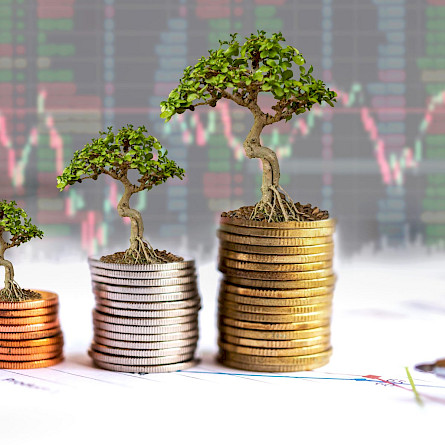At the time, an investor I knew well made the decision to sell all his stock holdings at the end of 2018. I concluded my blog as follows:
“If, as I estimate, this investor lost around 12.5% of the value of his portfolio, we can say that he probably lost almost two years of returns on the stock market…
As Peter Lynch, the famous investor and author of One Up On Wall Street, once said, ‘Far more money has been lost by investors preparing for, or trying to anticipate, corrections than in the corrections themselves.’ We have another eloquent example.”
I would like to return to this theme because I observed a similar incident in recent months. An investor with a large portfolio (worth a few million dollars) and who was a private management client of ours, made the decision to sell all his shares in November 2023. He was convinced that a strong stock market correction was awaiting us.
From November 2 to 16, 2023, he sold all his stock holdings.
I estimate that the gains made on these sales cost the equivalent of 2% of the value of his portfolio in taxes.
But what hurts more is the fact that this investor found himself in a cash position while the markets began a strong rally in the days following his decision to sell. I estimate that this investor lost some 12.4% in stock returns between November 16, 2023, and April 1, 2024.
We are therefore talking about a total loss approaching 15% of the value of the portfolio. In this case, as it involved a multi-million-dollar portfolio, the monetary loss is substantial.
You may say that the timing chosen to sell was particularly bad. This investor could very well have been right by selling just before a sharp market correction; in such a case, he would be rubbing his hands with satisfaction today.
However, I believe that it is generally a bad idea to sell all your stocks when you think the markets are about to collapse. Why?
First, because it has been historically demonstrated that stock markets appreciate over the years, even though corrections and bear markets are common.
Second, I believe that the investor who makes the decision to sell will probably do so when conditions seem negative, and the general sentiment is pessimistic. Cast your mind back to the fall of 2023 and you’ll see that was the case. Interest rates were at their highest in many years, war had just been declared between Israel and Hamas, and media headlines seemed particularly defeatist. However, it is often when pessimism is at its height that stock markets are cheaper.
Coming back to the investor who sold all his shares last November, I assume that he still has not reinvested his portfolio in the stock market. He probably placed a large part of the proceeds of the sale in the money market, which gives him almost 5% in interest, and another part in bonds, which perhaps gives him a return of a little more than 5%. In both cases, the after-tax return will be almost half of that.
The question he will ask himself is this: when will I have the opportunity to return to the stock markets at a good price? I would be hard-pressed to answer this question.
The one I would ask him is this: when the markets correct, will he have the courage and speed required to buy back? I ask this question knowing full well that a strong market correction will surely be associated with bad news.
For me, this sad episode confirms once again that it is preferable to invest in the stock market for the long term and to remain present there at all times.
_______






